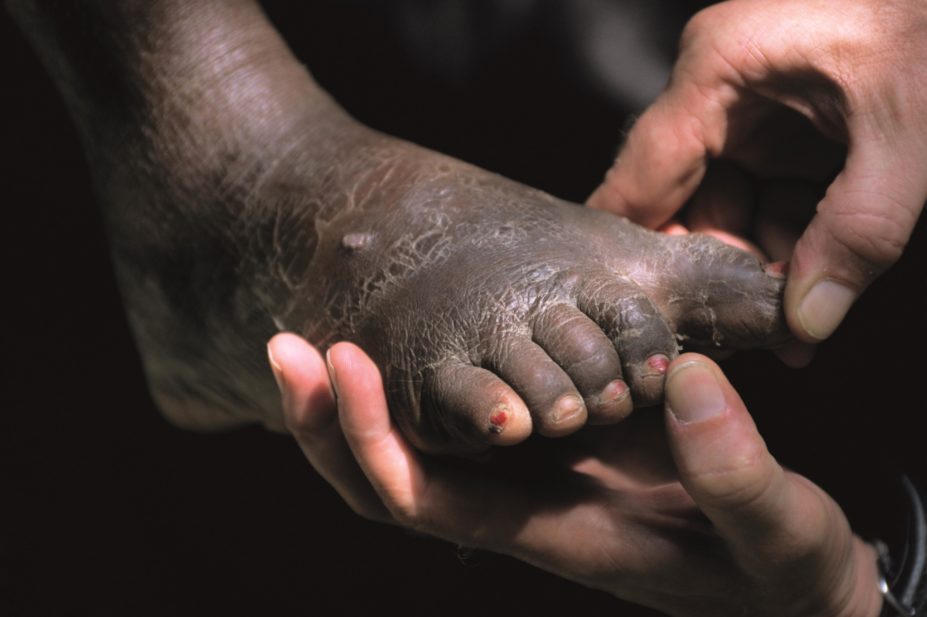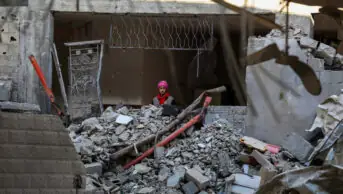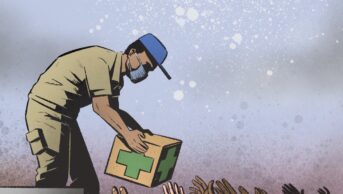
RGB Ventures / SuperStock / Alamy
The expansion of mass drug administration (MDA) is helping international efforts to eliminate lymphatic filariasis (LF), a progress report by the World Health Organization (WHO) says.
MDA — currently used in 60 LF-endemic countries worldwide — is recommended to stop the spread of the mosquito-borne disease. It involves a single combined dose of medicines given annually to all persons living in endemic areas for 4-6 years.
“Sustained commitment of governments, funding agencies, non-governmental organisations, academia and a continued supply of donated medicines can largely eliminate this debilitating disease by 2020,” says Jonathan King, from WHO’s department of control of neglected tropical diseases. “Hundreds of millions of people continue to benefit from falling prevalence of infection.”
Worldwide, an estimated 120 million people are infected with the disease, and more than 1.2 billion people in 73 nations are at risk.
According to the WHO, LF is the second leading cause of disability worldwide with 40 million people suffering from complications that limit occupational activities and mobility. The microscopic thread-like worms damage the lymphatic vessels resulting in clinical disease manifested as hydrocoele, lymphoedema and elephantiasis.
Of the 60 countries that implemented MDA in 2013, 22 used ivermectin plus alberndazole; 37 used diethylcarbamazine (DEC) plus albenzadole; and one country used DEC alone, the report says. In 2013, around 410.5 million people were treated.
Of the 60 countries, 15 of them, including Togo, Yemen, Sri Lanka, Cambodia, Vietnam and Vanuatu, have reduced infection prevalence, stopped MDA and started surveillance. A total of 22 countries have achieved 100% geographical coverage, conducting MDA in all endemic areas, including Burkina Faso, Sierra Leone, India, Egypt, Brazil and Malaysia. A further 23 countries are conducting MDA but have not reached all endemic areas, including Liberia, Nigeria, Kenya, Uganda, Bangladesh and Indonesia.
MDA treatments have not started in 13 countries, 12 of which are in Africa, and include the Democratic Republic of Congo, Guinea, South Sudan, Zimbabwe and New Caledonia, WHO points out.
The global pharmaceutical industry has pledged to donate all the necessary medicines — more than 14 billion doses — free of charge over a ten-year period from 2011 to 2020 to eliminate or control nine neglected tropical diseases, including LF.
According to the International Federation of Pharmaceutical Manufacturers Associations, the number of treatments to be donated for LF over this period is estimated at around 5.5 billion.

